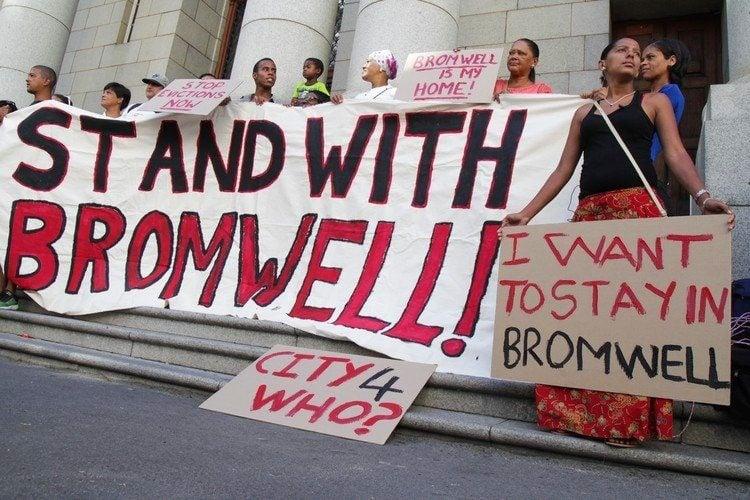Africa-Press – South-Africa. A public housing battle, which has stretched well over six years, is expected to be heard in the Supreme Court of Appeal (SCA) on Monday.
In 2021, the Western Cape High Court declared the City of Cape Town’s emergency housing programme, and the implementation in relation to citizens rendered homeless upon eviction, unconstitutional.
The court ordered the City to provide the inner-city residents with temporary, emergency accommodation or transitional housing as close to their current homes as possible.
The City was granted leave to appeal, and the matter will be heard at the SCA in Bloemfontein.
The metro has argued in court papers that the eviction order against the Bromwell Street residents was granted by agreement between the Woodstock Hub and the occupiers, without any involvement on the part of the City.
“After the eviction order had been granted, however, occupiers approached the City to provide them with emergency accommodation on the basis that they would be rendered homeless by the eviction,” the City said in its heads of arguments.
The City offered emergency housing at Wolwerivier.
The residents, a group of poor and working-class families, who have lived in a row of cottages on Bromwell Street in Salt River for generations, challenged the constitutionality of the City’s housing programme.
The residents argued that the City’s emergency housing programme, as well as its implementation, was unconstitutional because it unlawfully excluded from its delivery of housing in the inner City temporary emergency housing for people at risk of eviction into homelessness. They also argued that it unfairly discriminated against people who were evicted from private land.
The Bromwell Street residents’ homes were bought by private developers under the umbrella of the Woodstock Hub in 2013. It formed part of a project to upgrade the area, which local residents regard as a form of gentrification, which makes accommodation for the poor and working class unaffordable.
The residents have resisted eviction since 2014 because they cannot afford other options in Woodstock or Salt River, where they already had roots.They also refused the City’s alternate accommodation.
The Woodstock Hub had bought the Bromwell Street houses in 2013, and instituted eviction proceedings in July 2015.
The City maintained in its arguments that it had not acted unconstitutionally by not providing emergency housing to the occupiers and similarly placed persons in the inner city.
“The City has an obligation to give effect to the right of access to adequate housing across the board. Land and resources allocated to emergency housing are not available for allocation to permanent forms of housing,” the City said.
Disha Govender, lead attorney and the head of the Law Centre at Ndifuna Ukwazi, said: “It’s nearly six years since the case has been fought, with the Bromwell Street residents continuing to live their lives in the area, through the constant suspense of a looming eviction. Some of the children who were toddlers at the beginning of this case are now midway through primary school.”
The City has been approached for comment. It is yet to reply. Its comment will be added once received.
For More News And Analysis About South-Africa Follow Africa-Press






